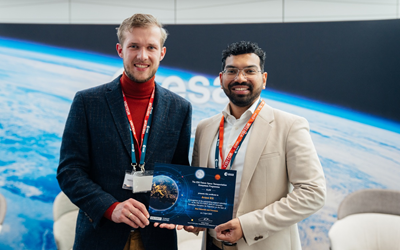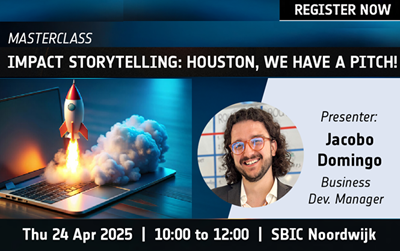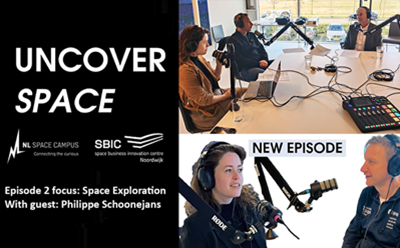The services provided by 2C Degrees will enable users to hedge against water price increases, offer water security across the supply chain and access water scarcity forecasting, to name but a few. The startup is focusing on estimating price fluctuations for a vitally important commodity: water. Participating in the programme of ESA’s Dutch business incubator (ESA BIC Noordwijk), the company is combining satellite imagery and artificial intelligence (AI) to provide insights into water scarcity and pricing patterns to aid in decision making.
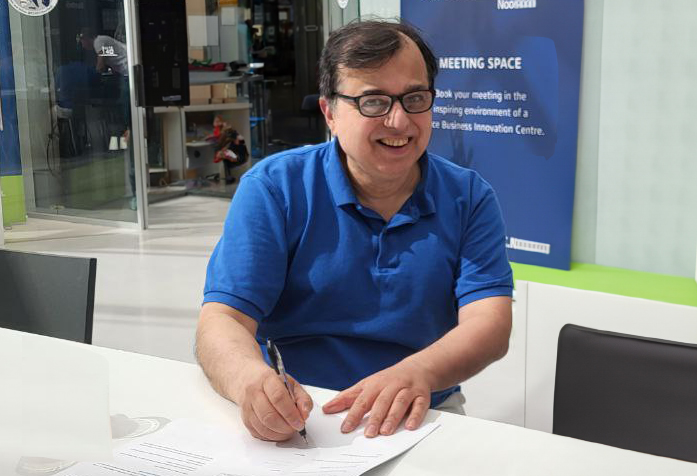
Patrick Slavenburg, founder of 2C Degrees, has an “immutable” belief in technology’s potential, as well as the potential of humanity. It is his vision that current challenges in business and society can be met by deploying intelligent, autonomous systems. Ever since joining ESA BIC in June 2023, this is precisely what the startup has been doing by developing a tech platform to streamline data analysis and provide valuable insights to businesses. Aiming to influence broader discussions on sustainability and resource management, the team also has ambitions to help shape the narrative around water pricing and market dynamics, ultimately fostering more sustainable practices. The entrepreneur is often to be seen presenting at conferences on these topics – such as at the AI & Big Data Expo Europe in Amsterdam coming up in October 2024. We caught up with Patrick to find out about his space related business.
What is the focus of 2C Degrees?
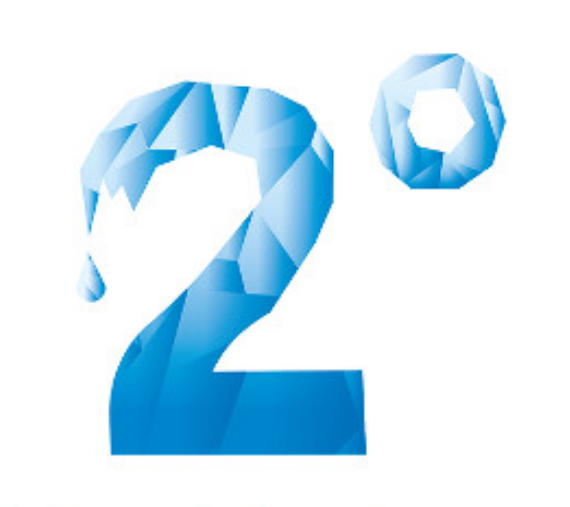
The core focus of our business is to determine the price of water as a result of drought or water stress. Currently, it is an overlooked aspect in business compared to other commodities, such as energy prices and the prices of carbon. However, we believe that in the future, water pricing will become increasingly important. We expect water markets to emerge to mitigate those risks and the impact on communities and businesses. We’ve observed some businesses already using internal water pricing that are three to five times the commercial rate they pay. If those rates go up, that multiplier could lead to significant financial exposure.
We also anticipate that water security projects – in the context of nature-based solutions – to become an essential part for business reconciliation. This is expected to be especially in areas where communities are affected by drought by the and businesses that rely heavily on water.
How many people are in your startup?
Our team is dynamic, ranging from three to five members. By this summer, it will solidify. We have individuals with different competencies, including AI, satellite technology, software development, legal and support.
What problem is your solution addressing?
Our approach involves analysing surface waters using satellite imagery and artificial intelligence to identify patterns of water scarcity and predict future trends. Water scarcity can have severe implications globally, impacting not only pricing but also necessitating solutions to manage crises, such as preserving harvests and ensuring sufficient drinking water in affected regions.
Which regions will you focus on initially?
While we’re developing a methodology that’s more generic, we have identified several regions of interest, including Northern Italy, Eastern Europe and the southwestern United States. These areas experiencing recurring droughts, making them prime candidates for our analysis.
How did your startup come about?
My interest in climate change discussions over the past decade got me thinking about the intersection between business and environmental issues. Water, in particular, seemed like a crucial area, given its relevance to ESG (environmental, social and governance) metrics and corporate responsibilities. Water emerged as a compelling area due to its relevance to businesses and regulatory frameworks. One challenge we encountered was the shifting regulatory landscape, which sometimes led to uncertainty about market demands.
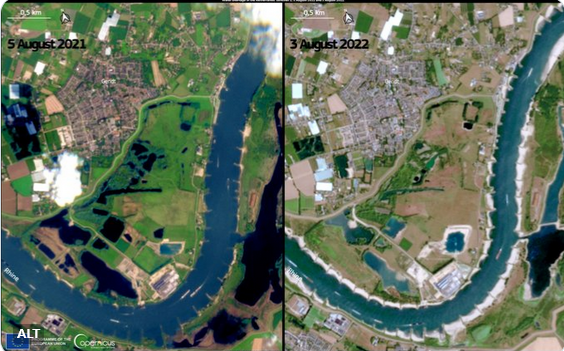
Can you explain further about the space connection?
We primarily utilise Sentinel satellite imagery, which is made available by the European Space Agency (ESA). We will also use other wavelengths (possibly from other satellites), as well as satellite weather data. This accessibility to satellite data facilitates the development of a thriving space economy in Europe. The idea is to extract data from satellite images to make predictions about (surface) water bodies, such as whether they will expand or shrink over time.
How can combining your interest in space and AI help your startup?
Space has always been a passion of mine. My background in physics, which i studied because I was inspired by Star Trek, led me to appreciate the exploration of new frontiers and advanced technology, which ultimately guided my career path into this interdisciplinary field of water resource management and AI integration. In our previous startup, we developed an AI algorithm platform, which was featured in the Stanford Continuing Education course book by Sudha Jamthe entitled AIX: Designing for Artificial Intelligence (2020). It was a valuable learning experience that paved the way for our current endeavours.
What is your focus during incubation at ESA BIC?
Right now, we are developing our platform and training the algorithm to provide valuable insights. We’re currently approaching the halfway point in terms of methodology. We’re exploring automation to streamline data analysis, reducing costs and making the process more accessible, akin to a conveyor belt system, thus transforming the business model from consultancy to a more platform-centric approach.
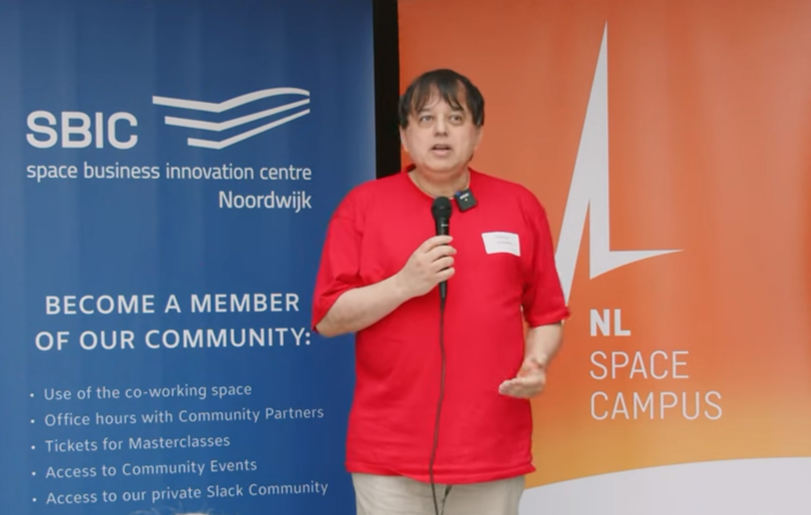
Who will your first customers be?
The first potential partners we are communicating with are located in Northern Italy, including paper mills and Italy’s largest utility company – that actually owns a lake. We’re also exploring partnerships with key players who may see value in our research capabilities. That group in particular are asset managers, especially if they work with pension funds of public servants, the church, unions and the like. It is vital for them to show evidence that they adhere to best practices when it comes to ESG, nature-based solutions and so on.
More generally, the EU regulation of last year, when new ESG guidance came out, was not as stringent as we had hoped, particularly regarding self-reporting and verification methods for businesses. In other words, a low level of self-reporting was enough. Consumers are more aware of environmental issues and there will be companies that want to take as many mitigating measures as they can. For those that seek satellite verification, we can be ahead of the market – by offering a “first movers advantage” for instance – and maybe we can even help, if we’re really ambitious, to shape the discussion a little bit.
We use artificial intelligence and satellite imagery to offer insights into water scarcity and pricing patterns
patrick slavenburg
What was your journey to ESA BIC?
Initially, I was looking for a new business ecosystem to be part of and I discovered about ESA BIC via different posts on LinkedIn, which then led my to the space business community at SBIC Noordwijk. After attending various events, I decided to join SBIC’s pre-incubation course, the Ignition Programme, which I found beneficial because I thought it would improve my chances when it came to applying to ESA BIC. If someone has a technical background, it’s especially useful because it provides a systematic understanding of launching a tech business rather than fragmented bits and pieces.
Which parts of the programme do you find most valuable?
The combination of resources and perspectives provided by the programme is invaluable, in particular the workshops, coaching and community – both ESA BIC official partners and the informal supportive network. It offers a diverse set of insights and support, which accelerates our progress significantly.
What are the benefits of being at ESA BIC?
The combination of resources and perspectives provided by the programme is invaluable, in particular the workshops, coaching and community. It offers a diverse set of insights and support, which accelerates our progress significantly. So, instead of trying to figure out things on your own or trying to reinvent the wheel yourself, you have access to the knowledge of the whole community that just feeds you the things you need to know, when you need to know it.
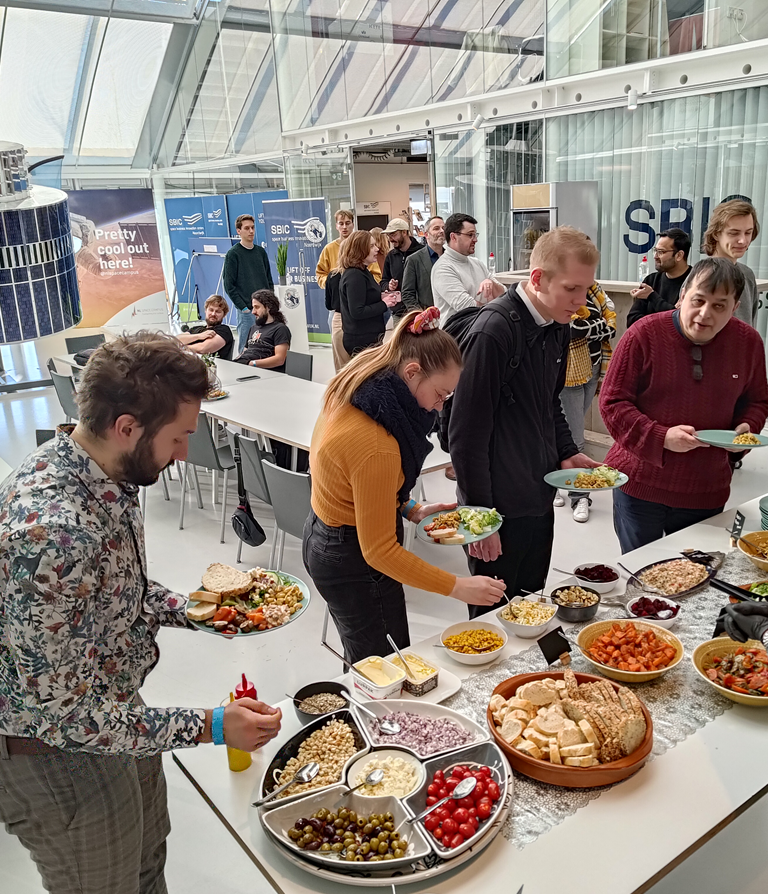
Develop your space related business idea!
Don’t miss out on the support that can lift off your space business. Take action now. Join the summer 2024 Ignition Programme to prepare yourself and get your business plan up to speed. Then, you can apply for the next ESA BIC application round.
